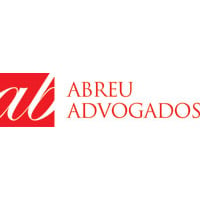

Partner, energy and natural resources | Herbert Smith Freehills






Rebecca Major
Partner, energy and natural resources | Herbert Smith Freehills
Number of years practice: 21
Principal practice areas: M&A and disposals, joint venture structuring, project development and related financing arrangements
Languages spoken: English and French
What is the geographical focus of your practice in Africa?
Pan-African.
Please describe the most important matters you have worked on in the African market in the last two years, including your role and the significance of the matter (if any) to the development of business and law.
I have advised on a number of strategic M&A matters in Africa over the past two years, mainly (but not exclusively) in the oil and gas, power and mining sectors. Highlights include advising a non-energy multinational group on the disposal of its subsidiaries in 15 different African countries and Eramet on the listed takeover of its Senegal/Norway partner, MDL.
I have also worked on advising a French corporate on the setting-up of a joint venture for an industrial facility in Nigeria, various Japanese trading companies on some of their largest transactions on the continent, including advising Mitsui on its acquisition of interests in the Moatize coal mine and related Nacala corridor rail and port infrastructure project in Mozambique from Vale.
Lastly, I advised various energy companies including Skypower, EDF, PW Power, AIIM and BWS on renewables, hydro and conventional power deals in both French and English speaking parts of Africa.
What differentiates your practice from that of other private practice lawyers?
I have been working at Herbert Smith Freehills for more than 20 years (in Paris and Asia) and during that time my work has always included a significant number of African matters. Africa is not new to me and has always been a strong part of my practice, as I am dual-qualified in English and French law, working in both languages. I lived and worked in Tanzania for nearly a year before starting work as a lawyer and have worked in most countries in Africa over my career.
In addition to advising companies, I have also had a lot of involvement in training African governments on negotiating and implementing energy, mining and infrastructure projects. I have been working with the Africa Development Bank (and more recently with GIZ, a Germany development organisation) on developing and running training programmes in a number of African jurisdictions for representatives of a wide range of African Governments. This has enabled me to build up strong relationships with relevant Government officials and see things from the other side of the table.
I have been lucky to have also had the opportunity to work on a number of projects in Europe, South America and Asia, and think that this experience helps me to offer different solutions in the African context.
Why has Africa been a particularly strong focus for you?
It was a natural focus given my background of working in Africa and the broad range of African work available for energy and mining lawyers in Paris. I have also been fortunate to have helped grow a strong Africa team at Herbert Smith Freehills over the years with partners such as Stephane Brabant, Bertrand Montembault, Nina Bowyer, Martin Kavanagh and Gavin Davies, and also our new team in Johannesburg.
Whilst I have learnt not to be too idealistic when working in Africa, and to have a strong dose of cynicism, I am very interested in the way multinationals and African companies and governments can work together to make businesses work. I am also interested in the way doing business in Africa is evolving in some sectors, and the ways that players are finding new ways of doing things.
I also like the intellectual and relationship challenges required to get some of the projects over the line. The last 20 years have enabled me to develop my ability to make the right judgment calls, and a spirit of creativity and cultural awareness.
What changes have you seen in the appetite for Africa-based ventures and investments over the last five years?
The increased focus by European, North American and Japanese banks and corporates on compliance issues means that there are more countries and more projects in which a number of our clients will no longer invest.
There has been a re-focus by the energy and mining industries in Europe, North America and, to some extent, Japan, on the renewables sector, I have also seen a move away from coal and oil, and increased interest in cobalt, lithium and other rarer metals.
There has also been a change in the types of player in Africa, with new investors such as the private equity funds investing in countries and sectors where they have very little knowledge. We are also seeing old players (the multinational oil and gas companies for example) divesting their traditional assets (upstream oil and gas, petrol stations and such) and looking to new markets like solar and electric vehicles.
As companies become more conservative in uncertain economies, some are less open to taking the risks involved in investing in many African businesses. However, others see this as an opportunity.
Finally, there is an increased focus on gas-to-power projects in South Africa, Morocco and elsewhere across the continent as well as on different power production models.
What megatrends do you think will shape the African market over the coming five years? How (if at all) will these trends affect your practice?
I think we will see continued Asian investment into Africa together with lots of political support for the Asia/Africa corridor (for example through the Chinese Belt and Road initiative and the Japanese TICAD). Herbert Smith Freehills hopes to continue to be one of the go-to firms on these projects.
In addition to small “commoditised” projects in Africa such as small off-grid projects, “mega” gas-to-power and pipeline projects will also continue. Again, we intend to play a role in both of these areas.
We also expect to see an increased presence of African investors and African run businesses as Governments become more nationalistic, and good African businessmen become more empowered.
There will be more diversified international investor portfolios. Over the last few years Herbert Smith Freehills has successfully expanded its business in Africa beyond energy and mining, and has built a good track record of advising on other kinds of investment.